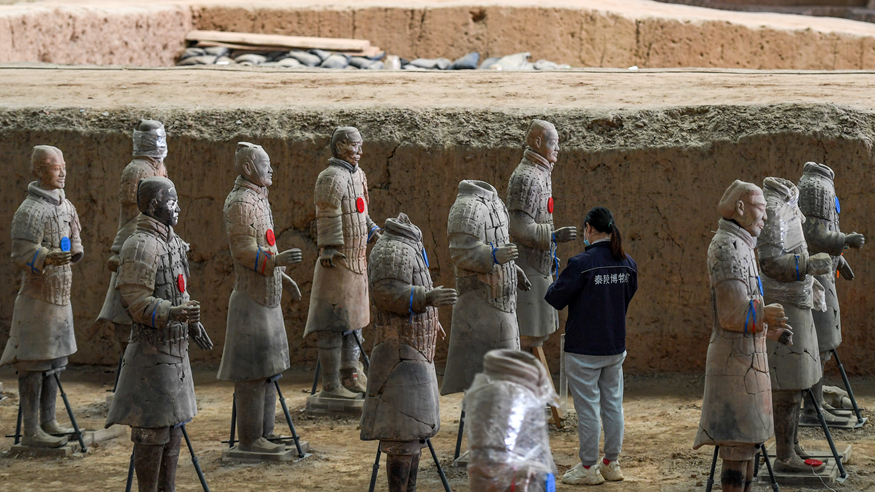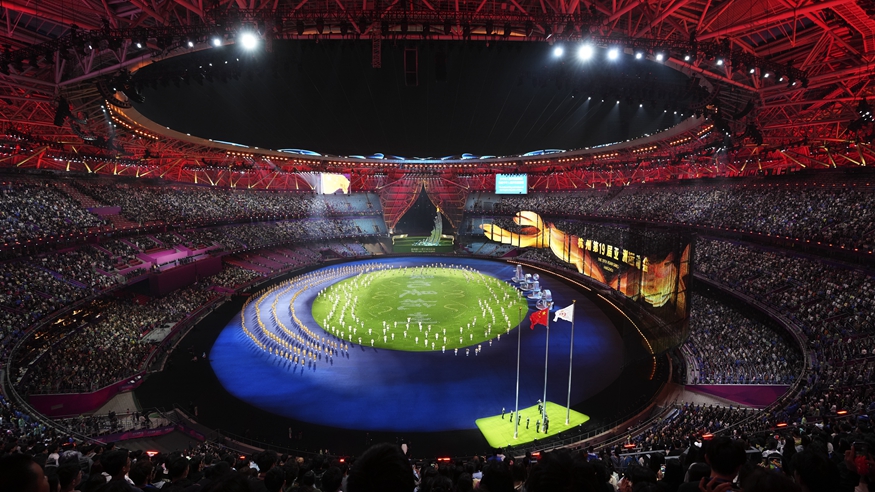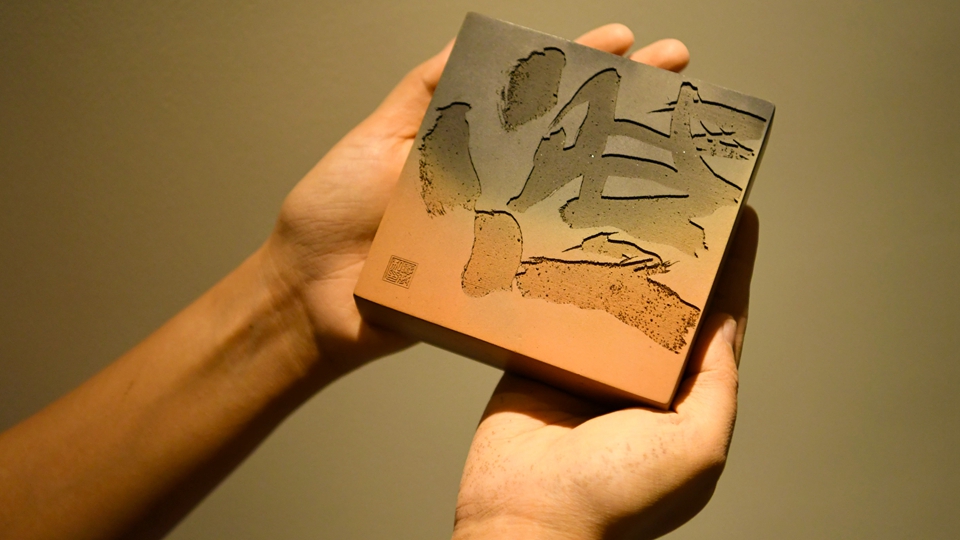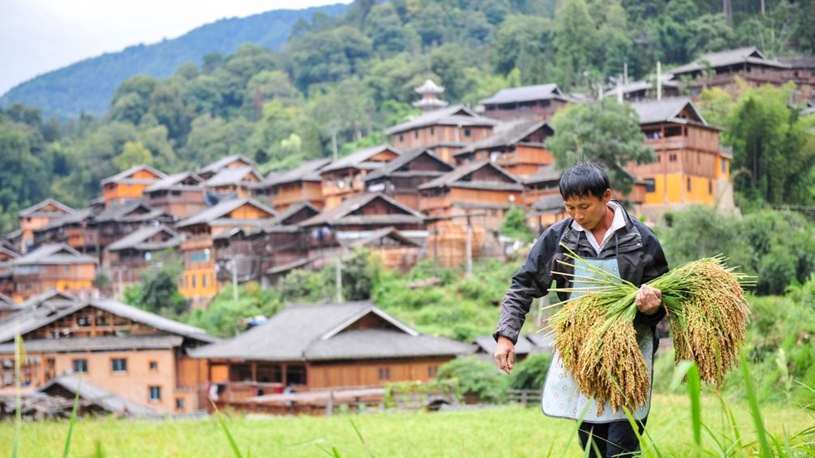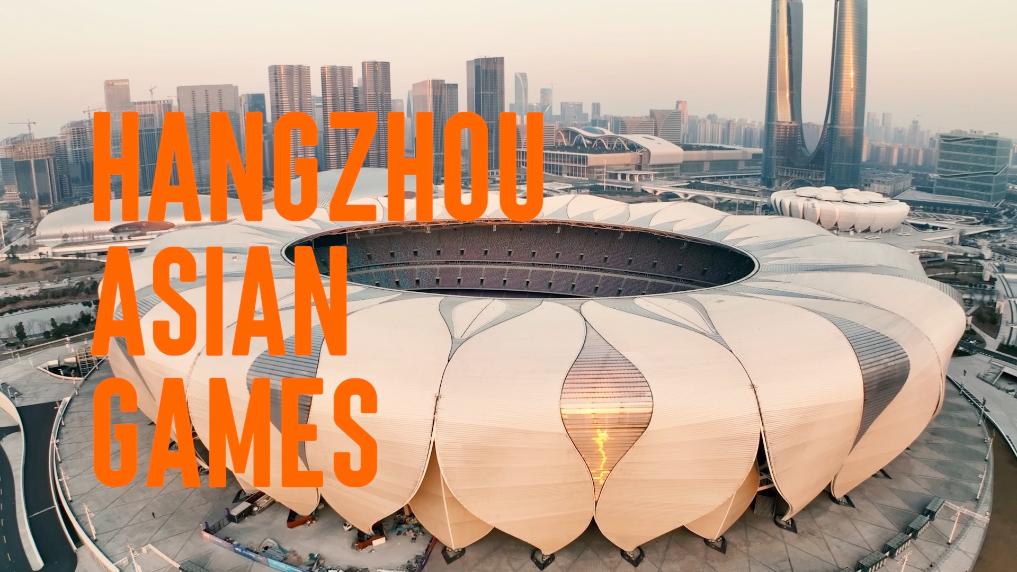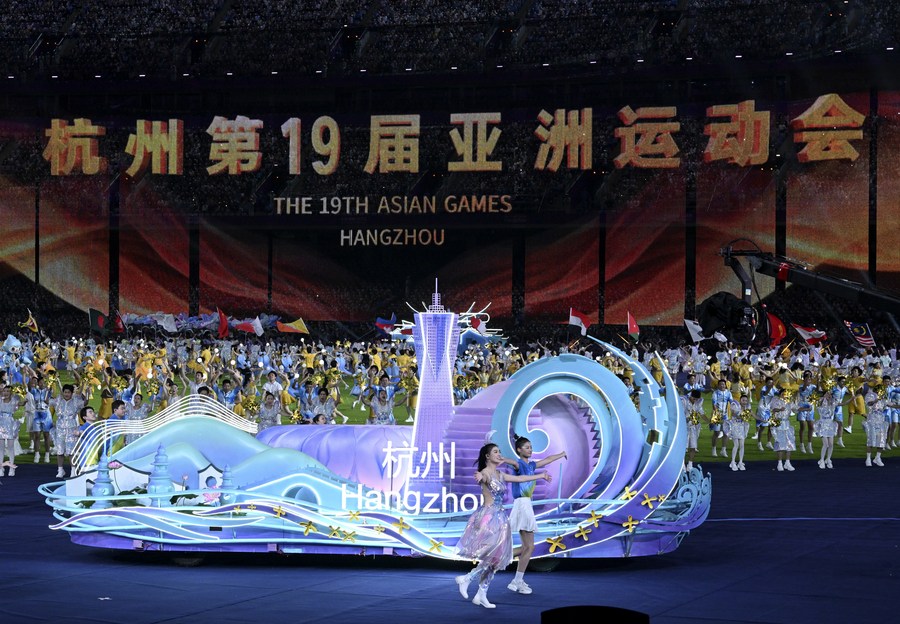
Artists perform during the closing ceremony of the 19th Asian Games at the Hangzhou Olympic Sports Center Stadium, Oct. 8, 2023. (Xinhua/Yang Guanyu)
The Hangzhou Asiad witnessed the achievements of Chinese sports, China's greater contributions to global sport and wider sporting participation.
HANGZHOU, Oct. 9 (Xinhua) -- The flame in the Hangzhou Olympic Sports Center Stadium was gradually extinguished on Sunday night, bringing down the curtain on the 19th Asian Games in Hangzhou, capital city of east China's Zhejiang Province.
Zhou Ling, an Arabic teacher at Zhejiang Gongshang University, saw her life revolve around the Asian Games over the past three decades.
Then a senior at university, Zhou served as a language volunteer at the Beijing Asian Games in 1990. Now she is involved in the language service for the Asiad again, in karate and volleyball events.
"There is so much coincidence for me to serve the Asian Games again," Zhou said. "Now I'm a bit older, but I want to offer guidance and support for student volunteers. I feel happy about my current self, while also admiring myself from back then."
The quadrennial continental sporting event has not only seen China's social and economic development, but also borne witness to the country's sporting achievements and its contributions to international sports.
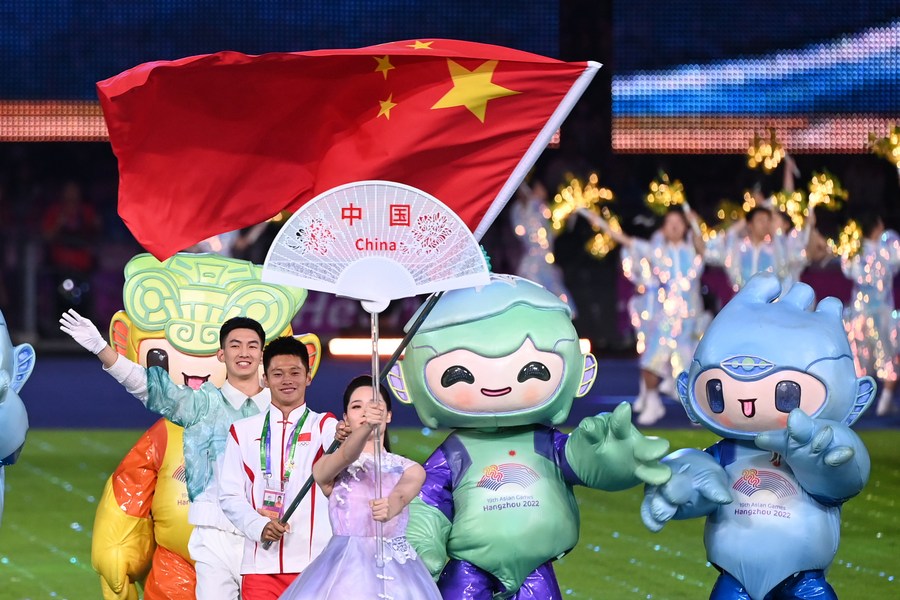
China's delegation parades into the Hangzhou Olympic Sports Center Stadium during the closing ceremony of the 19th Asian Games, Oct. 8, 2023. (Xinhua/Huang Zongzhi)
BIGGER ACHIEVEMENTS OF CHINESE SPORTS
At the opening ceremony of the Hangzhou Asiad, China's first Olympic gold medalist Xu Haifeng and Zhang Rongfang, a title-winning member of China's women's volleyball team at the 1981 World Cup, 1982 World Championship and 1984 Olympic Games, were two of the eight well-known athletes and coaches who entered the stadium holding the Olympic Council of Asia (OCA) flag.
33 years ago, Xu, accompanied by Zhang and diving Olympic champion Gao Min, carried the torch into the Beijing Workers' Stadium before lighting the cauldron.
From Beijing to Hangzhou, the roles for Xu and Zhang at the Asiad opening ceremony have changed, but they are both witnesses of the development of Chinese sport.
At the Hangzhou Asiad, China topped the medal table for the 11th straight time with 201 gold, 111 silver and 71 bronze medals.
In China's first outing at the Asian Games in Tehran in 1974, Su Zhibo secured China's maiden gold, and the country has seen smooth progress in its gold medal haul from 33 to 61 eight years later, when China topped the medal standings for the first time.
Following a Waterloo performance with only five golds at the 1988 Seoul Olympics, Chinese athletes got back on winning track at the next major event.
Competing at their home Asiad in 1990, China won 341 medals, including 183 golds, far exceeding the total of 92 golds claimed by main rivals South Korea and Japan.
China saw its gold rush reach a climax at Guangzhou in 2010, when it hosted the Asiad for the second time prior.
Garnering 416 medals, including 199 golds, China tightened its grip on its leading position in Asian sports.
In Hangzhou, Chinese athletes displayed excellent form in front of their home crowd, with eyes on the Paris Olympics fewer than 300 days away.
After claiming the first gold of the Hangzhou Asian Games, China's rower Qiu Xiuping said, "The ultimate goal is to step onto the highest podium in Paris."
Swimming Olympic champion Zhang Yufei collected six gold medals in Hangzhou and was jointly awarded MVP of the Games with Qin Haiyang. "I would give myself 95 out of 100 for my performances at these Games," she said, adding that she hopes to do even better in Paris.
"Favorable results at the Asian Games do not necessarily mean we can perform at the same level at the Paris Olympics, so we need to make greater efforts if we aim for Olympic golds in Paris," commented Zhou Jinqiang, deputy chief of China's delegation to the Hangzhou Asiad.
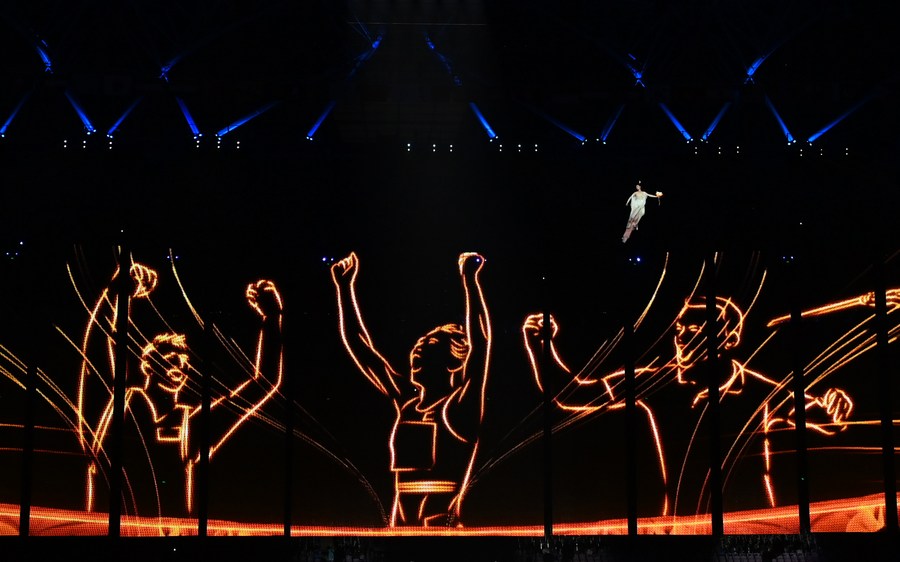
Animated figures adorn the closing ceremony of the 19th Asian Games, Oct. 8, 2023. (Xinhua/Huang Zongzhi)
GREATER CONTRIBUTIONS TO GLOBAL SPORTS
The role that China plays in international sports is not only reflected in its consistent successes in major competitions, but also its organization of said Games, including the 2008 Olympics and 2022 Winter Olympics, aside from three Asian Games spanning 33 years.
International Olympic Committee (IOC) president Thomas Bach acknowledged China's importance and ever-growing commitment to the Olympic movement.
"The truly exceptional Beijing 2022 Olympic Winter Games has brought the Olympic Winter Games to new heights with regard to the participation, and made more than 300 million Chinese people familiar with winter sports. This is unique," Bach told Xinhua ahead of the opening of the Hangzhou Asian Games, which the IOC chief said set an example for future Asian Games in many different ways.
Discussing the Games' opening ceremony featuring digital innovation and human involvement, IOC vice president Juan Antonio Samaranch Jr. commended it as "Olympic level."
"It was the kind of organization that no country other than China can achieve," he commented.
The Hangzhou Asian Games, which was postponed by a year due to the COVID-19 pandemic, attracted around 12,000 athletes from 45 countries and regions.
OCA acting president Raja Randhir Singh expressed his gratitude to the Chinese organizers in his address at the opening ceremony.
"You have done a fantastic job in preparing for the Asian Games. The one-year postponement due to the pandemic was unprecedented in OCA history, but your diligence and determination will bear fruit over the next 16 days and you will be rewarded with the most magnificent and successful Asian Games ever," said Singh.
In his speech at the closing ceremony, Singh called the Hangzhou Games "an unprecedented success."
As the Games coincides with the Mid-Autumn Festival, traditionally celebrated on the 15th day of the eighth lunar month, organizers hosted a series of activities for athletes, team officials and journalists to immerse themselves in the festive atmosphere through making mooncakes, solving riddles and enjoying performances.
"The Mid-Autumn Festival is about joyous gatherings and positivity. Athletes from different countries are here to exchange experiences, and it's truly fantastic," said Palestine triathlete Abdallah Abushabab.
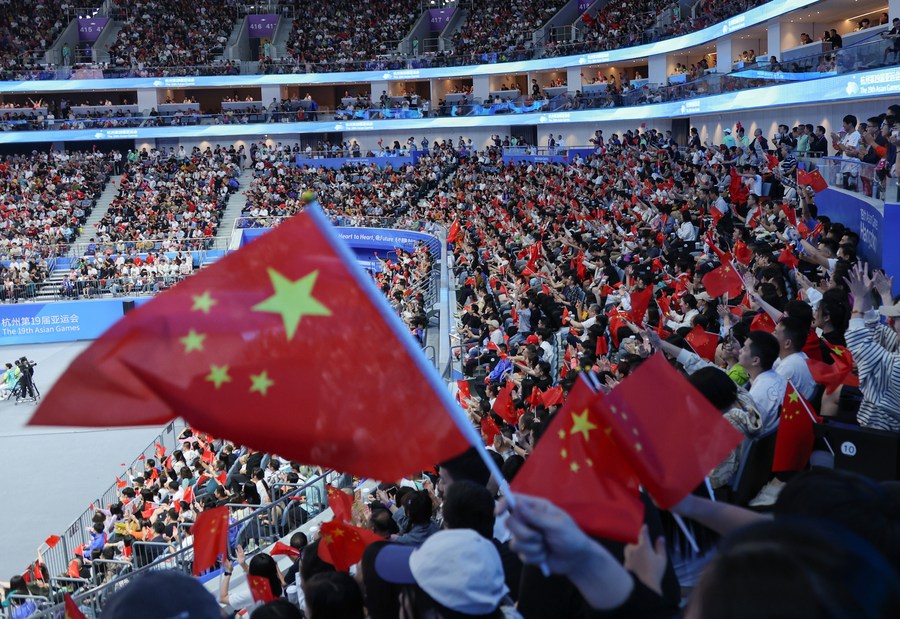
Spectators cheer during basketball's women's gold medal game between China and Japan, Oct. 5, 2023. (Xinhua/Wang Kaiyan)
WIDER SPORTING PARTICIPATION
The past three decades have seen Chinese people's increasing sporting engagement, not just in terms of fans watching games in venues or on TV, but actively practicing sports themselves.
August 8, the opening day of the Beijing 2008 Olympics, has been designated China's National Fitness Day since 2009.
On August 8 this year, people across the country engaged in a wide range of mass fitness activities to celebrate the 15th National Fitness Day. According to data from the General Administration of Sport, more than 24,000 national fitness events were carried out across the country, with the number of participants estimated at more than 6.5 million on the day.
During the eight-day Mid-Autumn Festival and National Day holiday, it was common that people swarmed into Asian Games venues to cheer the athletes on. Organizers said on Saturday that over 3.05 million tickets were sold, with revenues exceeding 610 million yuan (83.5 million U.S. dollars).
Meanwhile, over 6,000 public fitness activities were held nationwide during the holiday period, witnessing the participation of over 3.3 million people.
According to the Hangzhou Asian Games organizing committee (HAGOC), since May 2022, all available venues have received over 10 million visits, allowing the public to engage in fitness activities in these top-tier facilities.
"The concept of sharing with and benefiting the public will continue to be implemented and promoted through the hosting of future events," said Liu Guoyong, deputy director of the General Administration of Sport of China. ■

